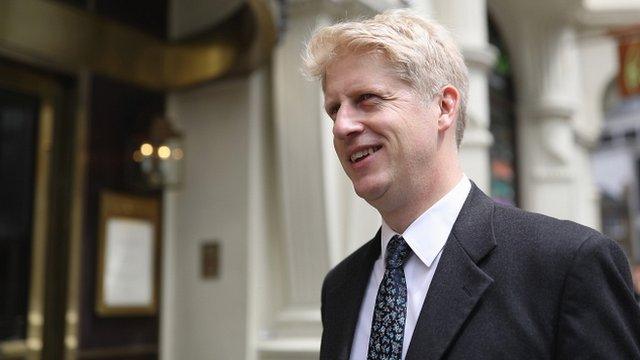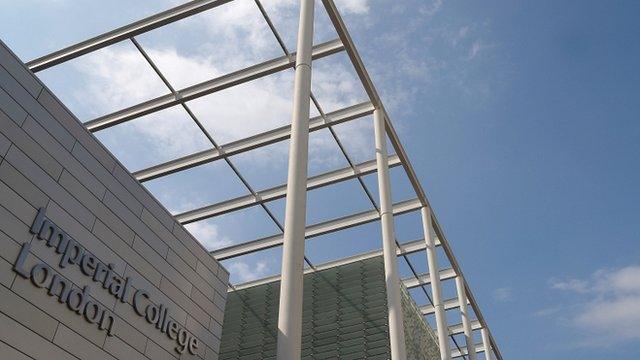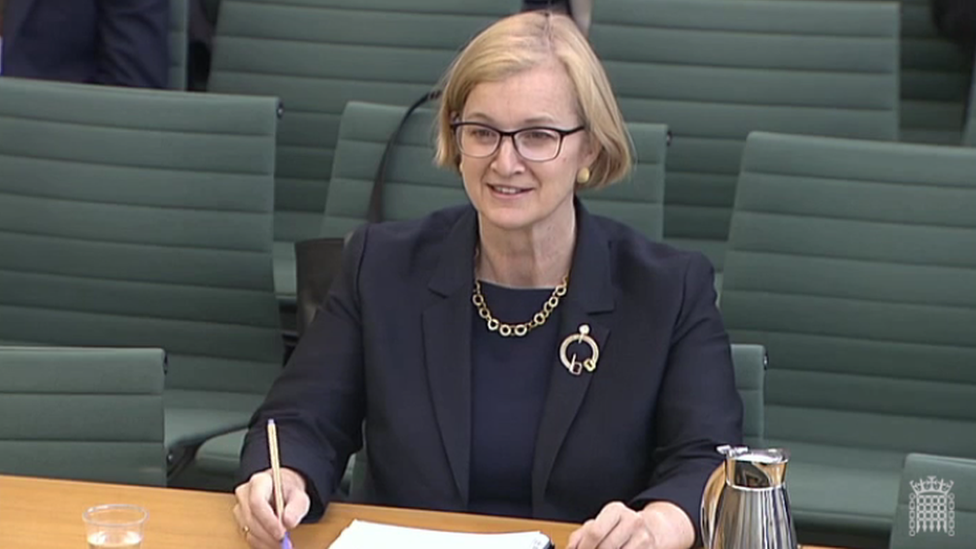Universities want funding clarity on Brexit and fees
- Published

Fees and Brexit: The universities minister will face questions over funding
In the high-minded, intellectual world of higher education, there seems to be one thing that really matters - money.
The big questions for Jo Johnson, returning as universities minister, will revolve around funding and fees - and it won't always be easy to provide answers.
It's going to be made even more complicated by the Whitehall shift in which higher education becomes part of the Department for Education, leaving its previous berth at the Department for Business, Innovation and Skills.
But science and research, central to universities' function and funding, are to become part of the new-look Department for Business, Energy and Industrial Strategy.
The higher education sector, with few exceptions, has been a vociferous supporter of staying in the European Union, and university leaders have been pushing for clarity over the financial implications of leaving.
The UK's universities are substantial beneficiaries from EU research funding, and they are anxious about the risk of losing both the cash and their place in international research projects.

Jo Johnson remains universities minister, but in a different department
It's possible that the UK could buy back into EU research projects, as an "associate" country, but that will still mean losing control over the direction of such research.
University vice-chancellors will be calling for reassurance from ministers that if EU research money disappears, there will be extra cash to fill the gap.
Another concern that universities will want to have addressed as soon as possible is about the status of staff and students from EU countries. This isn't a small issue for many universities.
As one example, Imperial College in London, one of the country's science powerhouses, says it has 2,800 students and more than 2,000 staff from EU countries.

Uncertain future: Imperial College has 2,000 staff from EU countries
Universities are international places, and there will be loud calls for more certainty about what Brexit will mean for these staff and students - not least because of fears they might move elsewhere in an academic brain-drain.
Ambitious researchers might not want to wait for the outcome of decisions about EU funding, especially as that is likely to become entwined in complex, wider trade negotiations.
There will also be questions to answer about cultural links through EU schemes for students. Will ministers pay for the UK to stay in international exchange projects such as Erasmus?
The other big funding questions are related to the higher education legislation already before Parliament.
Under the new leadership of the Department for Education, the higher education bill's second reading is due this week.
These proposals would allow tuition fees in England to rise with inflation above £9,000 per year, if universities can show they have high quality teaching.
There are plans for a "teaching excellence framework" to measure this - and Mr Johnson will have to negotiate the universities' enthusiasm for the extra money and their resistance to any extra bureaucracy.
Students and their families will also have to be persuaded that an increase in tuition fees is necessary, when they are already the highest in Europe.
The next minister will have to set up a new Office for Students - already dubbed Ofstud - which is meant to ensure value for money for students.
But the UCU lecturers' union said that with the current financial uncertainty it is "absurd" to press on with legislation drawn up before the referendum.
The shift in ministerial oversight to the Department for Education will also prompt some nervousness.
It raises questions about whether universities should be seen in the context of business - as big local employers, successful exporters and delivering economically vital research.
Or else will they be seen as an expensive phase of the education system, competing for budgets with schools?
Within the Department for Education, where an immediate pressure will be providing places and teachers for soaring numbers of pupils, schools are always likely to be a priority.
If there are cuts or extra funding is needed, and school budgets have a protected status, universities will worry that they will be the ones who lose out.
- Published7 July 2016

- Published7 July 2016
